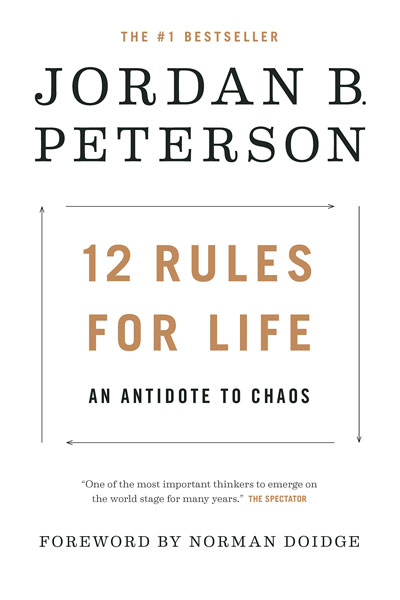

This article is an excerpt from the Shortform summary of "12 Rules for Life" by Jordan Peterson. Shortform has the world's best summaries of books you should be reading.
Like this article? Sign up for a free trial here .
In 12 Rules for Life, Jordan Peterson cites philosopher Nietzsche often. And no surprise – Nietzsche had plenty of guidance on how best to live your life.
Here are Jordan Peterson’s 3 best quotes from Nietzsche.
Jordan Peterson/Nietzsche Quote 1: “He whose life has a why can bear almost any how.”
Here, in Rule 2 of 12 Rules for Life, Peterson is saying that having a vision for your life forces you through obstacles toward your goals.
Too many people believe they have no mission in life. People are better at filling prescriptions for their dogs than for themselves, even though taking drugs is literally life-saving. Why?
12 Rules for Life argues the root of this is self-loathing – that we understand our faults completely, better than any outside observer, and believe we aren’t worth helping. No one else has more reason to see you as pathetic. By withholding something that does you good, you punish yourself for your failings.
The solution is to believe that you are worth helping. You have a vital mission in this world, you are important in this world to others, and you are morally obligated to take care of yourself.
This means taking care of yourself, getting healthier (physically and mentally), expanding your knowledge, pursuing goals you want, articulating your principles.
Once you have a mission – a why – you can bear almost any how, any pain that comes to you.
Jordan Peterson/Nietzsche Quote 2: “God is dead. And we have killed him.”
Most humans crave order and meaning in their existence, to deal with the terrifying uncertainty of the world. For much of history this function was served by religion, with rules handed down by gods and supernatural surveillance of behavior. Despite differences in the beliefs, all major religions drew on common themes, and the need for rules and order was universal. The ubiquity of this suggests something biological or evolutionary.
The developed world is moving to greater secularism, as a result of: scientific explanations of the world’s uncertainty; critical thinking around religion and the logical impracticality of all religions being true at once; and moral relativism.
But take away religion, and a void remains. There is no scientific code of ethics that inherited the stabilizing role of religion. In the absence of clear rules and a moral compass, people are prone to nihilism, existential angst, and misery.
In 12 Rules for Life, Peterson argues that there is a right and wrong way to conduct your life.
In contrast, he rejects the ambiguity of moral relativism, the idea that good and evil are subjective opinion and that every belief has its own truth. Moral relativism tolerates all ideas to avoid being “judgmental,” and prevents adults from telling young people how to live. It also rejects thousands of years of development of virtue and how to live properly.
In this vacuum of guidance on how to live, many are drawn to group-centered belief (like political or national allegiance) or ideologies instead, because it gives them identity, purpose, and a shared code of conduct. It simplifies the world.
That 12 Rules for Life has hit such a chord support the first point, that most people crave order and structure.
Jordan Peterson/Nietzsche Quote 2: “The strength of a person’s spirit” is “measured by how much truth he could tolerate…to what extent he needs to have it diluted, disguised, sweetened.”
This quote comes from Rule 8 in 12 Rules for Life: “Tell the truth – or, at least, don’t lie.”
This rule discusses not only lying to others, but also lying to yourself and obscuring your personal truth. Instead, you need to develop your personal truth, then act consistently with it.
Speak in a way that makes you feel strong, not weak. Act only in ways that your internal voice does not object to. A lie spoils all the truth it touches, like a tiny drop of sewage in a bottle of wine.
Are you doing anything you know is wrong? Stop it today. Stop when you feel an inkling that you should stop. Stop saying things that make you feel ashamed and cowardly; start saying things that make you feel strong.
Do only those things about which you would speak with honor.
Stand up for your beliefs. If you say yes when you want to say no, you weaken your resolve and become habituated to violating your beliefs. You will lack the strength when you really need it. Instead, when you say no, you transform yourself into someone who can say no when it needs to be said.
———End of Preview———

Like what you just read? Read the rest of the world's best summary of "12 Rules for Life" at Shortform . Learn the book's critical concepts in 20 minutes or less .
Here's what you'll find in our full 12 Rules for Life summary :
- Why standing up straight will make people treat you differently
- How to find meaning in your life and work
- Why you're lying to yourself without realizing it






